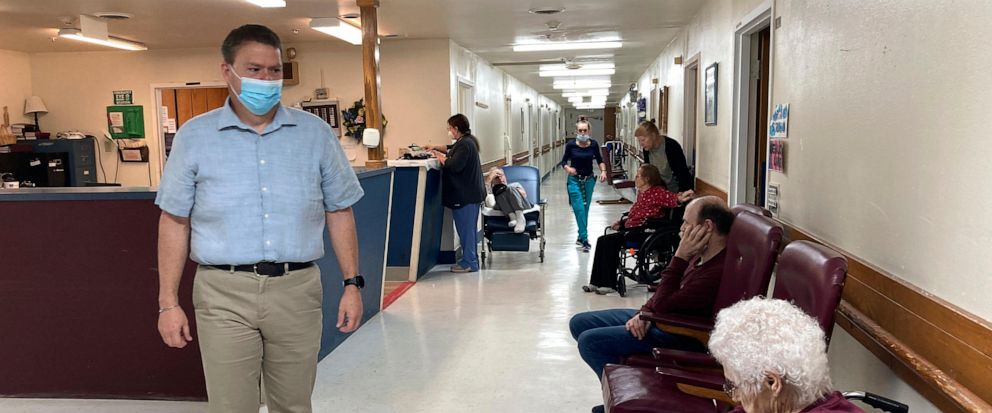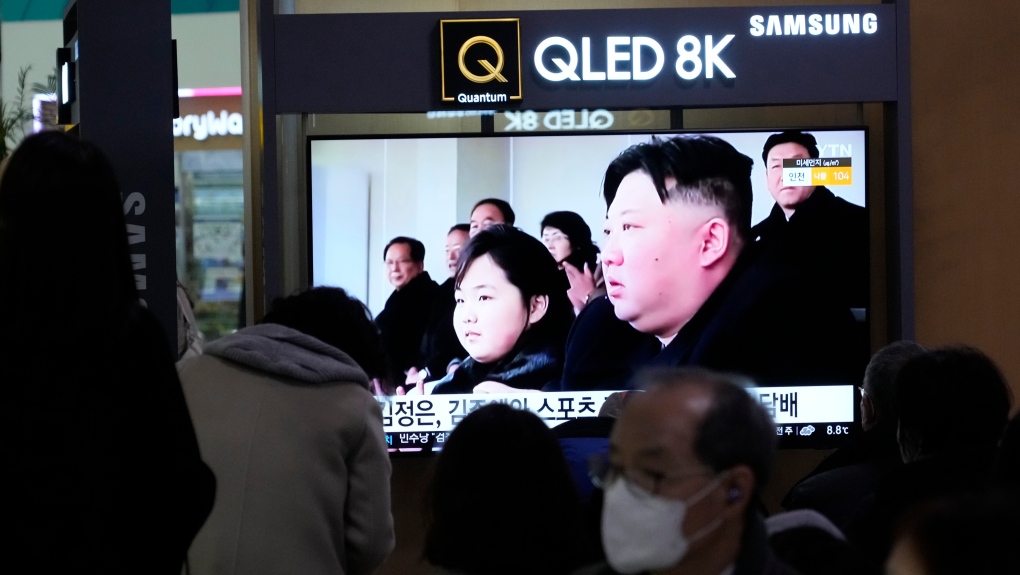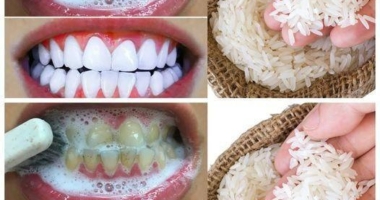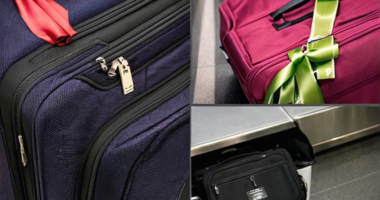LOWRY CITY, Missouri — At Truman Lake Manor in rural Missouri, each day begins the same for every employee entering the nursing home — with a swab in the nose, a swirl of test solution, and a brief wait to see if a thin line red appears indicating a positive COVID-19 case.
Only healthy people are allowed to care for virus-free residents.
Despite these precautions, a coronavirus outbreak swept through the facility late last year. An inspector later cited him for violating the federal government’s COVID-19 vaccination requirement for healthcare facilities.
Truman Lake Manor is one of approximately 750 nursing homes and 110 hospitals nationwide charged with violating federal personnel vaccination rules in the past year, according to an Associated Press analysis of data from the Centers for Medicare. & Health insurance services. Most were given a bureaucratic nudge to do better – although some nursing homes were also fined, particularly when they had multiple other problems.
A year after beginning to be enforced nationwide on February 20, 2022, the vaccination requirement affecting an estimated 10 million healthcare workers is the last major mandate remaining in President Joe Biden’s sweeping bid to increase national vaccination rates. Similar requirements for large employers, the military, and federal contractors have all been reversed, repealed, or partially blocked.
The health care vaccination mandate is set to last until November 2024. But some say it’s time to stop now, citing fewer severe COVID-19 cases, health worker shortages and expiring imminent on May 11 of a national public health emergency that has been in place since January 2020.
“Their regulations make it harder to provide care – not easier,” said Tim Corbin, the trustee of Truman Lake Manor who also serves as a nurse, adding that “terms must end.”
CMS said in a statement to the AP that “requiring staff to be fully immunized was a critical step in the response to the pandemic” and “has saved Americans from countless infections, hospitalizations and deaths.” .
The policy requires workers, contractors and volunteers at facilities receiving Medicare or Medicaid payments to have the full primary dose of an original COVID-19 vaccine, with exemptions for medical or religious reasons. Although care homes can be fined for violations, CMS has generally given offending facilities additional time to update their policies and come into compliance.
The Republican-led United States House recently passed legislation that would end the term, but the bill is unlikely to pass the Democratic-led Senate.
Meanwhile, the requirement continues with mixed results and, in some cases, widespread exceptions.
When a state inspector visited Truman Lake Manor in December, an outbreak of coronavirus had infected 26 of 60 residents and about a quarter of staff in the previous weeks. Corbin said the outbreak stemmed from an unvaccinated employee with a religious exemption who tested negative for COVID-19 before working a shift and was wearing a mask. The employee was not feeling well and tested positive after arriving home.
The inspector found that more than 40% of staff had obtained religious exemptions from getting vaccinated. But the federal Centers for Medicare & Medicaid Services does not review the rationale for these exemptions. The reason the facility was cited for a vaccination shortfall was that three employees had not received their second dose of vaccine and had no exemptions recorded. After the citation, they each received the second shot, and regulators approved the corrections in January.
Finding workers willing to get vaccinated is difficult, Corbin said, because many local residents remain opposed to the vaccine or doubt its effectiveness. Only 42% of adults in St. Clair County are vaccinated against COVID-19 — a rate barely half the national average.
Workforce shortages are forcing more than half of nursing homes nationwide to limit resident admissions, according to the American Health Care Association, which represents long-term care facilities. Although most other health care sectors have rebounded, nursing home employment is down 13% in 2022 from pre-pandemic levels and is at lows not seen since the 1990s.
LeadingAge, an association of nonprofit nursing homes and other senior service providers, initially supported the mandate and still encourages vaccinations. But he now says a federal requirement is no longer necessary.
Although deaths have fallen significantly from their peak in January 2021, the elderly and people with underlying health conditions remain more susceptible to severe cases of COVID-19. For this reason, some medical professionals believe the vaccine’s mandate should continue in nursing homes and hospitals.
“This is an important requirement,” said Dr. Georges Benjamin, executive director of the American Public Health Association. “Not only does this protect the healthcare worker themselves, but it also protects the patients.”
Nationwide, about 5% of more than 15,000 nursing homes caring for Medicare or Medicaid patients have been cited for violating the COVID-19 vaccination requirement, and about 2% of 4,900 hospitals, according to PA analysis. But these citations were not evenly distributed across states and occurred less often in the second half of 2022.
Twenty-four states cited no hospitals for COVID-19 vaccination violations.
Texas, which has the most nursing homes nationwide participating in Medicare or Medicaid, had only one nursing home cited for violating the vaccination rule.
Kansas, Florida and Texas each refused to verify vaccination violations, instead leaving that process to CMS, which hired contractors. As a result, CMS said Texas received more than $2.5 million in federal funding, Florida more than $1.2 million, and Kansas nearly $350,000.
Kansas Governor Laura Kelly, a Democrat who won re-election in a Republican-leaning state, said last year that the vaccine mandate conflicts with state law and could worsen labor shortages. work.
Nationally, the number of nursing homes cited for immunization violations dropped noticeably after CMS last June stopped requiring state inspectors to check for compliance when responding to complaints. regarding unrelated allegations, such as patient negligence. CMS cited substantial compliance with the vaccination requirement in the amendment.
__
Harjai reported from Los Angeles and is a member of the Associated Press/Report for America Statehouse News Initiative. Report for America is a nonprofit national service program that places reporters in local newsrooms to report on underreported issues.
ABC News
Don’t miss interesting posts on Famousbio









